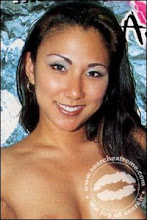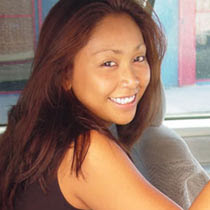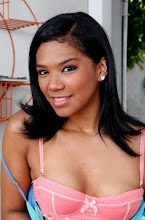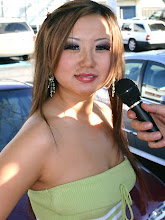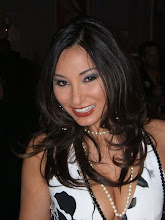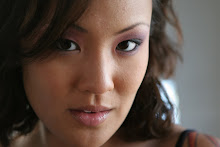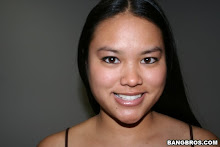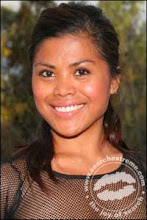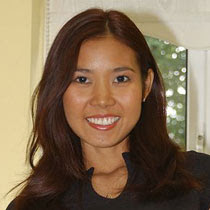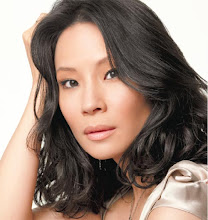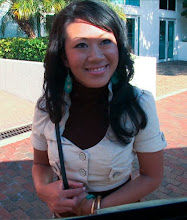First of all, the word "the" is a lot more useful than people think. If someone says they are Bill Gates then I can ask them "Do you mean THE Bill Gates?" and then even if you don't know who Bill Gates is you know that Bill Gates is somebody famous. Or I can say "Go get the bottle of Coke in the refrigerator." and you know there is only one refrigerator and it has one bottle of Coke in it. Likewise, I can say "Go get the apple from on top of the table" and there should be one table with one apple on top of it.
"The" is used to refer to someone or something specific. For example, you might say "A boy lived at home. The boy got a call from a girl. The girl was his neighbor." Here we refer to "a boy" and "a girl" the first time they are mentioned and "the boy" and "the girl" the second time they are mentioned because the second time they are mentioned you know that they are the boy and girl we were just talking about in the previous sentence.
"The" is used between two people when both people know the person or thing being referred to. For example, if I tell you to "Get the Coke from the refrigerator" you know what refrigerator I mean and that there is a bottle of Coke in there. Similarly, you can tell me "Turn on the TV" and I don't have to ask which TV you mean. This is why we usually say "Go to the bank" or "Go to the post office" because we usually have a specific bank or post office in mind: otherwise, we could just say "Go to a bank" to "Go to a post office."
One exception to this is when we are talking about instruments: we can say "I can play the guitar" or "I can the piano" and we aren't talking about a specific guitar or piano. We could also say "I can play a guitar" or "I can play a piano". This is not necessarily wrong, although some native speakers might insist that you have to use "the" in these sentences. Note that leaving out an article altogether would definitely be wrong: you don't "play guitar" in the same manner that you "play soccer": it is not a game. Nor do you "play the computer" because it isn't an instrument.
Geographical terms with "the" do make sense though. We say "the United States", "the Great Lakes, "the Amazon River" and "the Atlantic Ocean" because we are talking about a specific group of states, a specific group of lakes, a specific river and a specific ocean. We do not say "the England", "the France" or "the Canada" however because these are proper names: the only reason why you would say "the Bill Gates" is if there were more than one Bill Gates and you wanted to specify that there was a specific Bill Gates who founded Microsoft.
Another use of "the" is in science when instead of talking about a specific member of a group you are talking about the entire group. For example, you can say "The Australian crocodile can grow to be ten meters long" and this would be the same as if you said "Crocodiles in Australia can grow to be ten meters long": the meaning is exactly the same except the former sound more pretentious than the latter. Oh and "pretentious" means using the words "former" and "latter" when you could have said "first" and "last".
Most native speakers of English don't realize that they change the pronunciation of the in front of most vowels. For example, in "the end", "the apple","the ice cream" and "the orange juice", the word "the" is pronounced with a long e sound. This is because of something French grammarians call "liason" and it means that the vowel sound at the end of the blends with the vowel sound that follows it. For the same reason, the "the" in "the umbrella" does NOT have a long e sound: saying "the umbrella" with a long e sound sounds very pretentious and we don't use a long e sound for that particular "the" because (listen as you say it) the sound at the end of "the" and the sound at the beginning of "umbrella" is actually the same sound.
And native speakers and non-native speakers alike often make the mistake of thinking that the article "an" comes before every word that starts with a vowel when in reality it come before every word that begins with a vowel sound: for example, we say "a uniform" and "a university" and not "an uniform" or "an university" because "uniform" and "university" start with the /ju/ sound and not the /u/ sound as in "moon". On the other hand, you do say "an hour" or "an MRT" because the h in hour is silent and MRT is spelled out and not pronounced as a word.
That reminds me: it is actually wrong to say "I like the NBA and the MLB". It's okay to say "I like the NBA" because that means "I like the National Basketball Association" and you are talking about a specific association but when you say "I like the MLB" you are saying "I like the Major League Baseball" and it sounds as if you are talking about a specific baseball. You should say "I like watching NBA and MLB games". Adding the word "games" also helps remind people you are talking about sports if they don't immediately know what the acronyms NBA or MLB mean.
Tuesday, 30 June 2015
Sunday, 14 June 2015
But a pessimist knows...
A pessimist sees a bottle of Coke half empty. An optimist sees a bottle of Cole half full. But a pessimist knows it is full of dangerous chemicals.
A pessimist sees half a pizza gone. An optimist sees half a pizza left. But a pessimist knows that it will have to be put in the ref or it will go bad.
A pessimist would not marry Britney Spears because she is slutty and will probably cheat. An optimist would marry Britney Spears because she is slutty and looks like Britney Spears! But a pessimist knows that in a few years she will look like Madonna.
A pessimist would not marry Rihanna because she is slutty and will probably cheat. An optimist would marry Rihanna because she is slutty and looks like Rihanna! But a pessimist knows that in a few years she will look like Beyonce. Except that the optimist would point out that Beyonce still looks pretty damn good!
A pessimist sees half a pizza gone. An optimist sees half a pizza left. But a pessimist knows that it will have to be put in the ref or it will go bad.
A pessimist would not marry Britney Spears because she is slutty and will probably cheat. An optimist would marry Britney Spears because she is slutty and looks like Britney Spears! But a pessimist knows that in a few years she will look like Madonna.
A pessimist would not marry Rihanna because she is slutty and will probably cheat. An optimist would marry Rihanna because she is slutty and looks like Rihanna! But a pessimist knows that in a few years she will look like Beyonce. Except that the optimist would point out that Beyonce still looks pretty damn good!
Sunday, 7 June 2015
Dumb things Liberals say
1) "Natural" "organic" food is always better than "processed" modified food.
Dirt is "natural" but it is not good for you. The fact is that science has made it possible for food to remain fresh longer and for farmers to produce higher yields. These are good things.
2) "Natural" remedies are better than modern medicine.
Again, the idea seems to be that big corporations (in this case pharmaceutical companies) just want to make money and are lying to the public about the effectiveness of their food or medicine. The truth is that modern medicine has allowed people to live longer and healthier and that vaccines, in particular, have all but eliminated diseases like measles, polio and smallpox.
3) Rape is not about sex: it is about power.
Rape is about sex: this does not mean that rape is okay because sex and love are not the same thing. The fact is that sex is, for most people, a basic need. Power is not a basic need: in the hierarchy of needs, the need for power comes after the needs for food, drink, warmth, shelter, love, sex, social interaction and privacy. If anything, power is a means to an end and not an end in itself: people seek power (and money) in order to facilitate meeting their needs.
4) Only white people can be racist because only white people have power.
First of all, it is not true that only white people have power: this is not the colonial era and countries around the world have their own governments which are not all run by white people. Second, it is not power that makes a person racist but rather their beliefs about and attitudes towards people of other races: power just makes it easier for them to have their way with people.
5) If 1% of the population has most of the wealth then they stole it from the other 99%.
This is demonstratably untrue: if someone comes up with a new idea for a website of a type of restaurant or a type of store and they get rich it is because people willingly paid money for something they wanted. A corollary to this is the idea that big corporations are run by evil people whereas small businesses are run by good people: all big corporations started out as small businesses.
Dumb things Conservatives say
1) Life begins at conception.
The truth is that the human brain does not even begin to form until 5 weeks into pregnancy: an adult with a brain that does not function would be considered dead; it follows that a fetus that does not yet have a brain would not yet be considered alive.
2) Poor people need to work harder.
If by "poor people need to work harder" they mean that people without jobs should find jobs and go to work then that's fine but if they mean that poor people are necessarily people who don't work hard then that is demonstratively not true as people can work two full time jobs and still have difficulty making ends meet.
3) Global warming is a liberal conspiracy.
It is a fact that buring fossil fuels releases carbon dioxide. It is a fact that acrbon dioxide is a greenhouse gas that makes the air warmer. The only question is by how much the air will get warmer as a result of the emission of greenhouse gases. Te truth is that we are only talking about a few degrees every hundred years but a few degrees would make a big difference to our climate.
4) America is a Christian nation.
It is a fact that 84% of people in America are Christian. However, Americans who are not Christian are just as American as Americans who are Christian. It is also a fact that the founding fathers of America did not want people to be discriminated against on the basis of religion.
5) English is the official language of the United States.
The U.S. does not have an official language. 31 of 50 States recognize English as the official language but Hawaii recognizes both English and Hawaiian as official languages.
Cognito Ergo Sum
There are people who describe themselves as "pro-life" who say that life begins at conception. But how do we define "life" in this case?
In the broad sense, life means "the condition that distinguishes animals and plants from inorganic matter, including the capacity for growth, reproduction, functional activity, and continual change preceding death" but based on that definition every cell of our body has its own life, including individual sperm cells. Another definition of life is "the existence of an individual human being or animal".
So when is a person alive? This is not a scientific question: it is a philosophical question. Rene Decartes, when asked to prove that he existed said "I think therefore I am".
This is certainly how we define death: a person is dead when their brain no longer functions. In practice, we decide that a person is dead because they are no longer breathing, there is no pulse, they have turned pale and cold and they are no longer moving but all these symptoms may be temporary and may not indicate that the person is actually dead: indeed there have been cases where people have not only been revived from a death like state but reported having heard what doctors were saying while they were being revived.
Nevertheless, it is when our brains our no longer functioning that we say someone is "permanently" dead and, therefore, unable to be revived. The same criteria, probably should be applied to the beginning of life as well.
The brain doesn't even begin to form until 5 weeks into pregnancy. According to JM Goldenring as published in the Journal of Medical Ethics. 1985 Dec;11(4):198-204, "This paper suggests that medically the term a 'human being' should be defined by the presence of an active human brain. The brain is the only unique and irreplaceable organ in the human body, as the orchestrator of all organ systems and the seat of personality. Thus, the presence or absence of brain life truly defines the presence or absence of human life in the medical sense. When viewed in this way, human life may be seen as a continuous spectrum between the onset of brain life in utero (eight weeks gestation), until the occurrence of brain death. At any point human tissue or organ systems may be present, but without the presence of a functional human brain, these do not constitute a 'human being', at least in a medical sense."
That would seem to settle the issue. Of course, there is one problem with this and that is that the brain continues to develop even after birth. I suppose that is why, legally, a person is only considered a separate individual until they can breathe by themselves, ie after they are born. It is only at that point that they are no longer completely dependent upon the mother and can, in fact, be cared for by someone else entirely. Of course, that could simply be the difference between the legal definition of personhood and the medical definition of individual life. It may very well be argued that there is a point after the fetus is medically alive and before the baby is a separate person where the unborn child should have individual rights. However, that point would be well after conception.
Sunday, 26 April 2015
10 Scientific Facts That Sound Completely Made Up
1. Time dilation occurs when you are accelerated to high speeds or when you spend time in a large gravitational field. The first is from special relativity and the second is from general relativity. We know that time dilation in accelerated particles is real because elementary particles take longer to decay when they are accelerated to high speeds. We know that time dilation occurs in gravitational fields because GPS satellites have to take into account the difference in the way that time passes on the surface of the Earth compared to in orbit around it.
2. There is no beginning of time. Yes, the universe has only existed for 13.8 billion years but there is a catch: imagine going back in time in a time machine to "witness" the big bang. If you go back that far in time then the universe would be tending towards a singularity. However, a Stephen Hawking points out, if all the matter in the universe were concentrated on a single point it would be like a black hole and time would slow down to the point where you could continue to go back in time but never reach a beginning.
3. The Many Worlds Interpretation of Quantum Mechanics is real. Recent experiments (google "double-slit quantum eraser" or "delayed choice quantum eraser") have shown that interference patterns from double slit experiments only exist if we don't know which slit the electron passes through: it isn't that our consciousness is affecting the universe but rather that there must be different "worlds" for each possible outcome of the experiment and the case where we don't know which slit the electron passes through is a superposition of the two "worlds" in which we know that the electron passed through one slit or the other. This means that every one of us is like Schrodinger's cat, a superposition of mutually exclusive states even though each of us in any of those "worlds" can only perceive ourselves being in that particular "world".
4. Time can be treated as the fourth dimension of space. This is due to Einstein: in fact it is an extension of special relativity and part of general relativity. In Einstein's theories, if you accelerate from one speed to another then you experience a "space time rotation" which means that your measurements of distances and time have been altered. When applied to the universe as a whole, it means that the universe, in a sense, is not changing with time but just is. Imagine if the passing of time were like you looking out the window of your car as you drove down the highway: imagine you could only see the present and not the future or the past; you would get the impression that the universe were changing with time and the future was yet to be determined but, in reality, the past is still there behind us and the future is laid out in front of us.
5. Thermodynamics implies that entropy can never be zero so, again, there is no beginning of time. This is another argument from Hawking, from his book A Brief History of Time, for why there is no beginning of time. If there were a singularity at the beginning of time then entropy would be zero but the Third Law of thermodynamics says zero entropy is impossible so this implies that there would be no be beginning of time. The Second Law of thermodynamics also says that the entropy of the universe is always increasing which implies that the universe will expand forever and eventually decay into the smallest of elementary particles. Hawking's great insight was to point out that the Second Law of thermodynamics actually *defines* the arrow of time. Scientists had been thinking this way for some time but Hawking applied it to the universe as a whole to argue that the expansion and heat death of the universe is inevitable.
6. A positron (an anti-electron) is an electron travelling backwards in time. This is an idea from Dirac: in fact, he postulated the positron (a kind of anti-matter) from the idea that elementary particles should be able to travel in either direction in time and he speculated that anti-matter would exist and would appear to annihilate with matter when they came in contact. Sure enough, positrons (and anti-matter in general) is real and they do annihilate when they come in contact with electrons. Of course, how can this be? How can matter be destroyed like this? From Dirac's point of view, the electron does not disappear: it becomes the positron and travels back in time. Energy is conserved because an x-ray photon is released in the process.
7. Photons can be bent by a gravitational field. In fact, a sufficiently strong gravitational field can catch a photon in orbit. A photon that passes beneath this "event horizon" cannot escape. This is what is then called a "black hole".
8. Photons carry momentum. We learn in school that momentum is mass times velocity so how can a photon carry momentum? It turns out that this is only an approximation and that even massless particles have momentum.
9. X-ray photons can decay into electron-positron pairs. There is a catch though: when an x-ray photon decays it decays into two paricles (an electron and a positron) of equal mass moving in opposite directions. So what happens to the original momentum of the photon? Well, it turns out that this momentum needs to be transferred to something massive, such as an atomic nucleus through the emission and subsequent absorption of a virtual photon. This, of course, needs to happen after the decay occurs. This is a good example of how the quantum world does not care about our naive notions of cause and effect: in the quantum world, events can ultimately be their own causes.
10. Most of the mass of the universe is made up of matter we cannot see. We know this because we can see how galaxies are gravitationally attracted to each other to a degree that suggests there is more matter than we can see, even if we assume that the galaxies have enormous black holes at their cores. Most likely this dark matter consists of non-hadronic (ie neither leptons nor baryons) matter that does not interact electromagnetically or nuclearly, only gravitationally. This matter is believed to be more massive than even the Higgs Boson, which is why we haven't made one yet in a particle accelerator. There is actually a long standing theory called "supersymmetry" that actually predicts non-hadronic dark matter. If a particle accelerator were to produce a particle of dark matter then it would appear as though all the mass and energy that was put into an experiment had simply disappeared. This would be a big deal.
Tuesday, 14 April 2015
Common English Errors in Asia
1. Don't say "I accompanied my son to do his homework" as this is not what "accompany" means. You have to say "I accompanied [my son] to go [somewhere]". It could be the beach, the movies, the park, whatever. You can say "I helped my son do his homework." "Accompany" always has a direct object which is a person and an indirect object which is a place.
2. "Advice" and "advise" do not mean the same thing: "advice" is a noun and "advise" is a verb that means "give advice".
3. "Almost" and "always" don't mean the same thing: if you almost did something it mean...s you were about to do something and didn't; if you always do something it means you do it every day non stop.
4. App is pronounced "ap" not "A.P.P." It is not an acronym: it is an abbreviation of "application".
5. A person who applies for a job is called "an applicant" and not "an applier". Similarly, it is "consultant" not "consulter", "resident" not "resider", "precedent" not "preceder", "descendant" not "descender" and "confidant" not "confider". Also, "confidant" is a noun meaning "person with whom you confide" but "confident" is an adjective meaning "certain".
6. Do not say the next train (or bus) stop is "arriving". It is your train (or bus) that is arriving at the next stop and not the stop: you can say that the next train (or bus) stop is "coming up" though.
7. Asking somebody to do something is different from telling somebody to do something: if you ask somebody to do something then you say "please".
8. It's called a "ball point pen" not a "ball pen".
9. "Bathe" means "take a bath". "Breathe" means "take a breath".
10. "Belief" and "believe" do not mean the same thing: "belief" is a noun and "believe" is a verb. See also relief / relieve, half / halve, receipt / receive, conceit / conceive and deceit / deceive.
11. Borrowing means taking something you intend to give back: lending means giving something you intend to get back.
12. Bringing something means coming to a place carrying something. Taking something means picking up something and going away.
13. Buses and trucks are not referred to as "cars" in English. That being said, a section of a train is called a car.
14. Cafes are restaurants with tables outside that serve coffee. Starbucks is a coffee shop and not a cafe.
15. Cake is not a kind of bread: cake is made with eggs; bread isn't.
16. Cats (or dogs) is used to refer to cats (or dogs) in general. Thus, "I like cats" makes sense but "I like cat" does not.
17. It's called a "cell phone" not a "hand phone".
18. A certificate is different from a license: a license allows you to do something whereas a certificate shows you are qualified to do something. You aren't allowed to drive without a driver's license but you can speak English even if you don't have GEPT certificate.
19. Children is already plural. Do not ask "How many childrens do you have?"
20. "Choice" and "choose" do not mean the same thing: "choice" is a noun and "choose" is a verb that means "make a choice".
21. A clinic is smaller than a hospital and a grocery store is smaller than a supermarket.
22. Closets are small rooms for hanging clothing; a wardrobe is a piece of furniture for hanging clothing.
23. Coffee is uncountable because it is a liquid. That being said, you can order "a coffee" in a restaurant and they will give you a cup of coffee. Be careful though: a bag of ground coffee is "coffee" and never "a coffee".
24. Comfortable and comforting do not mean the same thing: a chair is confortable while a funeral for a friend or loved one is comforting.
25. Don't say "my company" to mean "the place where I work": only say "my company" if you own the place. Also, don't say "my company" to mean "the people I work with": what you really mean is "my coworkers".
26. Credit is a good thing: it means that you are owed something in exchange for goods or services. When the bank credits your account it means you now have money you can take out and spend. A lot of people say "credit" when they mean "debt". A "credit card" is a card is not actually a card that gives you credit: it is a card that gives you debt.
27. Crime is often used as an uncountable mass noun. After all, if you literally did kill two birds with one stone would that be one crime or two crimes?
29. If you add the letter 'e' at the end of a word, it can change the pronunciation and meaning of the word: for example, if you add an 'e' to man (a male adult) it becomes mane (a lion's hair and beard), if you add an 'e' to them (those or these) it becomes theme (a subject or topic), if you add an 'e' to kit (a set) it becomes kite (a flying toy on a string), if you add an 'e' to dot (a speck) it becomes dote (to love or cherish) and if you add an 'e' to cut (a slice or to slice) it becomes cute (adorable).
30. "Effect" and "affect" do not mean the same thing: "effect" is a noun and "affect" is a noun that means "have an effect on".
31. Electric means something you plug in. Electronic means having a computer chip (usually for memory). Electronic equipment is all electric but electric equipment is not all electronic.
32. Equipment is uncountable because it is a collective noun: you don't carry "equipments" when you go camping; you carry "equipment".
33. The phrase "Everybody doesn't" sounds awkward: you should say "Nobody does", unless of course you actually meant "Not everybody does".
34. Excited and exciting do not mean the same thing: if a movie is exciting then you are excited while watching it. See also amusing / amused, boring / bored, frightning / frightened, intriguing / intrigued, interesting / interested and terrifying / terrified.
35. Family is a collective noun and refers to a group. The plural, families, means "more than one family". When you say "I need to feed my families" it sounds like you have more than one wife and they each have children.
36. You should say "There are fewer people in the class this week" and not "There are less people in the class this week" because people are countable. Also, we say "How many people?" and not "How much people?" and "A few people" and not "A little people".
37. Finding something means locating something that was lost: it does not mean looking for something and not finding it. When you say "I spent an hour finding the store" you mean "I spent an hour looking for the store."
38. In English, "foot" refers to the part of the leg below the ankle and not the part of the leg below the knee (known as the shin bone or the calf muscle). Oddly enough, when you buy a "chicken leg" at KFC you are just getting the part of the leg below the knee.
39. Don't say "I had dinner with friend." You should either say "I had dinner with a friend" (in which case it is a date) or "I had dinner with friends." (in which case it is a dinner party).
40. Fun and funny do not mean the same thing: anything you enjoy is fun but funny things make you laugh.
41. Furniture is uncountable because it is a collective noun: you can have tables and chairs but they are furniture and not "furnitures".
42. Fur is hair on animals. The hair on my arms and legs is not called "fur".
43. Glass is uncountable because it is a mass noun. "A glass" is a cup made of glass. A cup that is not made of glass is a cup, not a glass.
44. Good morning, good afternoon and good evening are greetings. You say "Good night" though when you are saying goodbye (and going to bed).
45. A graduate student is not simply a student who has graduated: it is a student who has graduated and is now studying for a Master's degree or PhD.
46. Hair is usually considered a mass noun and therefore uncountable. You have thousands of hairs on your head and you normally don't count them.
47. Hamburger meat is ground beef. It is uncountable because it is a mass noun. "A hamburger" is a sandwich consisting of a bread bun with cooked hamburger meat inside. It is not a hamburger if the meat is pork: that would have to be called a "pork burger" in analogy with "chicken burger". Ham in a bun would be a "ham sandwich" and not a hamburger.
48. Getting "high" does not mean getting "excited": it means getting intoxicated by taking drugs.
49. Homework is uncountable because it is a collective noun: the plural of "assignment" is "assignments" and not "homeworks".
50. Hot dogs are frankfurter sausages in a bun. They are not sandwiches.
51. Houses are buildings that people live in. Your apartment is not a house because it is not its own building. "Apartment" is a noun and "apart" is the verb: by definition, apartments are "a part" of a larger building. Thus, if you own a store and you live upstairs then the building you live in consists of a store with an upstairs apartment: it is not what westerners would consider a house.
52. Ice cream is uncountable because it is a mass noun. That being said, in British English "an ice cream" refers to what in American English is called "an ice cream cone" which both mean an ice cream cone with ice cream inside.
53. You don't "join" a wedding or a party. You "go to", "attend" or "participate in" a wedding or party. "Join" only makes sense when you join a group such as a sports team or a club. You don't "join" a party because when the party is over you go home.
54. Knowledge is different from information: knowledge is something you get from experience; you can get information from a book or from the internet. Also, information, knowledge and news are all uncountable. Do not say "I have an information" or "I have a knowledge" or "I have a news".
55. You should say "I should eat less fat" and not "I should eat fewer fat" because fat is uncountable. Also, we say "How much fat?" and not "How many fat?" and "A little fat" and not "A few fat".
56. Letting somebody do something means allowing them to do something. If you force somebody to do something then you are making them do something.
57. "Menu" does not mean "food". It is not correct English to say "What is the menu at this restaurant?" but rather "What is ON the menu at this restaurant?". The word "menu" actually means "list" and it could refer to any list such as a menu of links on the home page of a website.
58. Morning is from when you get up to 12:00. Afternoon is from 12:00 to when it gets dark. Evening is from when it gets dark to when you go to bed. Morning is the start of the day and evening is the start of the night.
59. It is wrong to say "I like the NBA and the MLB". It's okay to say "I like the NBA" because that means "I like the National Basketball Association" and you are talking about a specific association but when you say "I like the MLB" you are saying "I like the Major League Baseball" and it sounds as if you are talking about a specific baseball. You should say "I like watching NBA and MLB games". Adding the word "games" also helps remind people you are talking about sports if they don't immediately know what the acronyms NBA or MLB mean.
60. The phrase "NEW OPEN" makes no sense. First of all, it should be "NEWLY OPENED". "Newly" here is an adverb that specifies when the store was opened (recently). "Open" can be a verb as in "Open the door" or it can be an adjective as in "The door is open". We could say a store is open and specify the opening hours from 9:00 am to 9:00 pm. But when a new store has been opened it is different from opening the store every day. When you are talking about a store opening for the first time, you don't say "The store is open" but rather "The store has been opened" meaning it is now open for business (as a result of having been opened for business). Think of it this way: if a store opens at 9:00 am every day then at 9:05 am it is "newly open" (I guess) but is that what the sign means or does it mean the store has been "newly opened" for business?
61. Next Thursday means "this coming Thursday" and does not necessarily mean "Thursday next week". On a Monday, for example, "next Thursday" means "Thursday this week".
62. "Notice" and "notify" do not mean the same thing. You may notice a burgular breaking into your neighbour's house and not notify the police.
63. Ob-gyne is an abbreviation of "obstetrician-gynecologist" and should not be pronounced "Oh-bee-guy-knee".
64. "Okay" can mean "Yes" if you are being asked for permission ("Can I watch TV?") or accepting an offer ("Do you want some pizza?") but it doesn't make sense as an answer to a yes/no question like "Are you a student?" Also, "okay" is a possible answer to "How are you?" but it doesn't mean the same thing as "Fine": if a soldier in WWII said on the radio "We are all OK" it didn't mean they were all fine; it meant none of them were dead.
65. Open does not mean "turn on" in English and close does not mean "turn off". When you open a program on your computer, the analogy is with opening a window and not turning on a machine.
66. Pan and pen are not pronounced the same way. Nor are fly and fry. Thus if you were to say "I have a flying pen" then people will think you have a pen that flies and not a frying pan.
67. Paper and pepper are not pronounced the same way: paper is for writing whereas pepper is for cooking.
68. Paper is uncountable because it is a mass noun. "A paper" is a kind of homework assignment.69. If something happened in the past then it is no longer true: for example, if you say "I had a dog" then you don't have the dog anymore. "I have had a dog for five years" is not the past tense because you still have a dog.
70. Pasta (including spaghetti and macaroni) is uncountable. It is the material used to make Italian noodles. Note that spaghetti is a kind of pasta but not all pasta is spaghetti: pasta comes in different shapes and it is only the long stringy pasta that is called spaghetti.
71. Piece should not be used as a default measure word: if someone give you something "in pieces" then it is broken!
72. Rice is uncountable because it is a mass noun. You can count individual grains of rice but you buy rice in bags and you eat rice in bowls.
73. Sandwiches are not necessarily triangle shaped. A hamburger, for example, is a kind of sandwich.
74. Scared and scary do not mean the same thing: if a movie is scary then you are scared while watching it. We do not use "scaring" as an adjective.
76. Shirt and shorts are not pronounced the same way: your shirt covers your chest whereas your shorts cover your bottom.
77. Sixty and sixteen are not pronounced the same way: a sixteen year old is a teenager whereas a sixty year old is old enough to consider retirement.
78. Soap and soup are not pronounced the same way: soap is for cleaning and is not something you can have for dinner.
79. Sofas are soft chairs that two or more people can sit on. If the chair is for one person then it is not a sofa, no matter how soft it is.
80. Sound (or noise) is usually considered a mass noun and therefore uncountable, except when we are talking about sudden discrete noises like gunshots or screams.
Chips are not cookies: chips a hard when they are fresh and soft when they go stale but cookies come out of the oven soft.
81. Staff is uncountable because it is a collective noun: the plural of "employee" is "employees" and not "staffs". You can also say "staff member" and "staff members" to mean "employee" and "employees", respectively.
82. "Steak", by default, means "beef steak". When you say "pork steak" you mean "pork chop" (if it has a bone) or "pork cutlet" (if it doesn't have a bone). Similarly, we say "lamb chop", "ham slice", "fish filet" and "chicken cutlet" and not "lamb steak", etc.
83. Suitcases that you take to the airport are called your "bags" and not your "boxes". It is true that in British English a "pencil case" is a "pencil box", oddly enough.
84. Suites are luxury hotel rooms: they are not single room apartments. Single room apartments are called "studios".
85. Taking often implies stealing: if you say you went to the store and "took" something you had better make it clear that you bought it first.
86. When you "teach" someone you are taking the role of a teacher. When dealing with superiors or equals you should avoid using the phrase "I will teach you how to..." and say instead "I will show you how to...". "I will teach you" is fine if you are talking to your children or your students.
87. "The" is used to refer to someone or something specific. For example, you might say "A boy lived at home. The boy got a call from a girl. The girl was his neighbor." Here we refer to "a boy" and "a girl" the first time they are mentioned and "the boy" and "the girl" the second time they are mentioned because the second time they are mentioned you know that they are the boy and girl we were just talking about in the previous sentence. "The" is used between two people when both people know the person or thing being referred to. For example, if I tell you to "Get the Coke from the refrigerator" you know what refrigerator I mean and that there is a bottle of Coke in there. Similarly, you can tell me "Turn on the TV" and I don't have to ask which TV you mean. This is why we usually say "Go to the bank" or "Go to the post office" because we usually have a specific bank or post office in mind: otherwise, we could just say "Go to a bank" to "Go to a post office." One exception to this is when we are talking about instruments: we can say "I can play the guitar" or "I can the piano" and we aren't talking about a specific guitar or piano. We could also say "I can play a guitar" or "I can play a piano". This is not necessarily wrong, although some native speakers might insist that you have to use "the" in these sentences. Note that leaving out an article altogether would definitely be wrong: you don't "play guitar" in the same manner that you "play soccer": it is not a game. Nor do you "play the computer" because it isn't an instrument.
88. "Thigh" and "hip" do not mean the same thing: the thigh is a muscle in the upper leg and the hip is a bone immediately below the waist.
89. Time is uncountable because the units that we use to measure time are arbitrary. Thus we say "How much time?" and not "How many time?" Money is uncountable for the same reason.
90. Toast is sliced bread that has been placed in a toaster and toaster. The toast wasn't toast before it was toasted.
91. Traffic is uncountable because it is a mass noun. In particular, traffic is a measure of the _density_ of cars, motorcycles, scooter, trucks and buses on the road and not the number of them: a hundred cars on a multi-lane highway does not create the same amount of traffic as a dozen cars on a city street.
92. Feeling "uncomfortable" does not mean feeling "sick".
93. Until now means "up until this moment". When my wife said "I am pregnant until now" I said "What are you talking about? You are _still_ pregnant."
94. "It used to" and "It is used to" do not mean the same thing. "Used to" is used to refer to something that happened in the past as in "It used to work (but doesn't anymore)" or "I used to watch cartoons (but I don't anymore)". "Is used to" is used to denote a use for something as in "A key is used to open doors" or ""Is used to" is used to denote a use for something". Do not use "is used to" to mean "usually".
95. Usually means "most of the time" as opposed to sometimes which means "some of the time". Here, "most" means "over 50%". Thus, you can say "I sometimes have toast for breakfast but I usually have eggs and rice." and it makes sense if you have egg and rice over 50% of the time and, thus, have toast less than 50% of the time. Using "usually" automatically implies that you sometimes do other things but using "sometimes" doesn't necessarily imply you do something else more often. For example, you could say "I sometimes eat at McDonalds, sometimes eat at KFC and sometimes eat at Subway" and you could eat at all three places 33.3% of the time.
96. Vocabulary is uncountable because it is a mass noun: the plural of "word" is "words" and not "vocabularies".97. Watching TV is an activity that most people do every day. Seeing a specific movie is something most people do just once.
98. "Well" does not mean the same thing as "good". "Well" is either an adverb as in "He can sing well" or an adjective as in "He went home because he is not feeling well".
99. Wine is, by default, made from grapes. Wine made from grapes is called "rice wine". Beer is not considered a kind of wine by native speakers of English.
100. Don't forget to pronounce the 'zes' sound in "realizes", the 'ses' sound in "buses" nor the 'ces' sound in "dances".
Saturday, 28 December 2013
My one hundred-twenty favorite celebrities 2014.
1. Cyndi Wang
2. Rainie Yang
3. Rihanna Fenty
4. Rhian Ramos (+1)
5. Jolin Tsai(-1)
8. Vivian Hsu
9. Kim Chiu (+4)
10. A-Mei Zhang
11. Leng Yein (+3)
12. Karen Mok
13. Red Dela Cruz (New!)
14. Nicki Minaj (+50)
15. Mariah Carey(+50)
16. Angel Locsin (-1)
17.-25. Girl's Generation (+30)
26. Beyonce Knowles (+16)
27. Sarah Geronimo (New!)
28.-29. By2 (New!)
30.-36. Weather Girls (+26)
37. Tyra Banks (+32)
38. Nicole Scherzinger (+8)
39. Megan Fox (-16)
40. Britney Spears (+38)
41.-46. T-ara (New!)
47. Kimberly Chen (New!)
48. Grace Park (-32)
49. Brandy Norwood (-27)
50. Annie Chen (-15)
51. Megan Good (-26)
52. Selena Gomez (-23)
53. Hsu Chi (-46)
54. Angela Zhang (-45)
55. Sasha Grey (-28)
56. Maria Ozawa (-28)
57. Maggie Q (-37)
58. Jamie Chung (-37)
59. Brenda Song (New!)
59. Kerry Washington (+41)
60. Pops Fernandez (-42)
61. Christina Milian (-36)
62. Hyuna (-32)
63. Yao Yao (-32)
64. Jun Jihyun (-32)
65. Zhang Zhiyi (-32)
66. Li Jiaying (-32)
67. Gwei Lunmei (-31)
68. Ming Na Wen (-31)
69. Tamlyn Tomita (-31)
70. Mariel Rodrigues (-31)
71. Kristen Kreuk (-31)
72. Jessica Alba (-31)
73. Vanessa Hudgens (New!)
74. Halle Berry (-31)
75. Scarlet Johansson (New!)
76. Anne Hathaway (New!)
77. Lauren Tom (-33)
78. Lupe Fuentes (-15)
79. Zoe Saldana (-13)
80. Lucy Liu (-13)
81. Gabrielle Union (-13)
82. Rosario Dawson (-12)
83. Lisa Bonet (-12)
84. Zoe Kravitz (-12)
85. Anne Curtis (-12)
86. Iya Villania (-12)
87. Jennifer Hudson (-12)
88. Jessica Sanchez (-12)
89. Lee Hyori (-12)
90. Jordana Brewster (-11)
91. Kim Kardassian (-11)
92. Paris Hilton (-11)
93. Rosalind Chao (-11)
94.-99. Mocha Girls (-8)
100. Devon Aoki (-76)
101.-108. Viva Hot Babes(-9)
109. Ciara (New!)
110. Eva Mendes (New!) 111. Michelle Rodrigues (New!)
112. Gal Gadot (New!)
113. Paula Patton (New!).
114. Celine Dion (-97)
115. Charice Pempengco (-96)
116. BoA (-42)
117. Katy Perry (New!)
118. Ella Chen (-45)
119. Hebe Tian (-45)
120. Selena Ren (-45)
2. Rainie Yang
3. Rihanna Fenty
4. Rhian Ramos (+1)
5. Jolin Tsai(-1)
6. Elva Hsiao
7. Coco Lee (+4)8. Vivian Hsu
9. Kim Chiu (+4)
10. A-Mei Zhang
11. Leng Yein (+3)
12. Karen Mok
13. Red Dela Cruz (New!)
14. Nicki Minaj (+50)
15. Mariah Carey(+50)
16. Angel Locsin (-1)
17.-25. Girl's Generation (+30)
26. Beyonce Knowles (+16)
27. Sarah Geronimo (New!)
28.-29. By2 (New!)
30.-36. Weather Girls (+26)
37. Tyra Banks (+32)
38. Nicole Scherzinger (+8)
39. Megan Fox (-16)
40. Britney Spears (+38)
41.-46. T-ara (New!)
47. Kimberly Chen (New!)
48. Grace Park (-32)
49. Brandy Norwood (-27)
50. Annie Chen (-15)
51. Megan Good (-26)
52. Selena Gomez (-23)
53. Hsu Chi (-46)
54. Angela Zhang (-45)
55. Sasha Grey (-28)
56. Maria Ozawa (-28)
57. Maggie Q (-37)
58. Jamie Chung (-37)
59. Brenda Song (New!)
59. Kerry Washington (+41)
60. Pops Fernandez (-42)
61. Christina Milian (-36)
62. Hyuna (-32)
63. Yao Yao (-32)
64. Jun Jihyun (-32)
65. Zhang Zhiyi (-32)
66. Li Jiaying (-32)
67. Gwei Lunmei (-31)
68. Ming Na Wen (-31)
69. Tamlyn Tomita (-31)
70. Mariel Rodrigues (-31)
71. Kristen Kreuk (-31)
72. Jessica Alba (-31)
73. Vanessa Hudgens (New!)
74. Halle Berry (-31)
75. Scarlet Johansson (New!)
76. Anne Hathaway (New!)
77. Lauren Tom (-33)
78. Lupe Fuentes (-15)
79. Zoe Saldana (-13)
80. Lucy Liu (-13)
81. Gabrielle Union (-13)
82. Rosario Dawson (-12)
83. Lisa Bonet (-12)
84. Zoe Kravitz (-12)
85. Anne Curtis (-12)
86. Iya Villania (-12)
87. Jennifer Hudson (-12)
88. Jessica Sanchez (-12)
89. Lee Hyori (-12)
90. Jordana Brewster (-11)
91. Kim Kardassian (-11)
92. Paris Hilton (-11)
93. Rosalind Chao (-11)
94.-99. Mocha Girls (-8)
100. Devon Aoki (-76)
101.-108. Viva Hot Babes(-9)
109. Ciara (New!)
110. Eva Mendes (New!) 111. Michelle Rodrigues (New!)
112. Gal Gadot (New!)
113. Paula Patton (New!).
114. Celine Dion (-97)
115. Charice Pempengco (-96)
116. BoA (-42)
117. Katy Perry (New!)
118. Ella Chen (-45)
119. Hebe Tian (-45)
120. Selena Ren (-45)
Tuesday, 27 August 2013
Cyndi Wang's Second Life
We're into the 26th episode of Cyndi Wang's Second Life. I'm still waiting for something interesting to happen. Whatever happened to 恩真's parents? Did they give up looking for her? Why doesn't 俊杰 tell 恩真 that they were going to get married before she lost her memory? Why do 立方's parents let 恩真 stay with him in his room? Are Taiwanese parents really that liberal? "Mom. Dad. I picked this girl up. She doesn't remember who she is. Can she stay with me in my room?" You've got to be kidding me!! I have to wonder if their parents thought he was gay and they are just happy he (apparently) has a girlfriend. Oh, but wait, that's just it, she's NOT his girlfriend: 恩真 is sleeping in his bed but he's sleeping on the floor and he's keeping THAT from his parents and allowing his parents to believe they are actually sleeping together. What? Seriously? It's like Momo Love all over again: Cyndi Wang is a very attractive woman. (There. I admitted it: I find her attractive.) Yet in dramas it seems as though her characters are only interested in guys who are NOT attracted to her.
Seriously though, is 小童 the boyfriend of 立方?
Seriously though, is 小童 the boyfriend of 立方?
Monday, 18 February 2013
My ONE-HUNDRED favorite celebrities:
1. Cyndi Wang
2. Rainie Yang
3. Rihanna Fenty
4. Jolin Tsai
5. Rhian Ramos
6. Elva Hsiao
7. Hsu Chi
8. Vivian Hsu
9. Angela Zhang
10. A-Mei Zhang
11. Coco Lee
12. Karen Mok
13. Kim Chiu
14. Leng Yein
15. Angel Locsin
16. Grace Park
17. Celine Dion
18. Pops Fernandez
19. Charice Pempengco
20. Maggie Q
21. Jamie Chung
22. Brandy Norwood
23. Megan Fox
24. Christina Milian
25. Megan Good
26. Devon Aoki
27. Sasha Grey
28. Maria Ozawa
29. Selena Gomez
30. Hyuna
31. Yao Yao
32. Jun Jihyun
33. Zhang Zhiyi
34. Li Jiaying
35. Annie Chen
36. Gwei Lunmei
37. Ming Na Wen
38. Tamlyn Tomita
39. Mariel Rodrigues
40. Kristen Kreuk
41. Jessica Alba
42. Beyonce Knowles
43. Halle Berry
44. Lauren Tom
45. BoA
46. Nicole Scherzinger
47.-55. Girl's Generation
56.-62. Weather Girls
63. Lupe Fuentes
64. Nicki Minaj
65. Mariah Carey
66. Zoe Saldana
67. Lucy Liu
68. Gabrielle Union
69. Tyra Banks
70. Rosario Dawson
71. Lisa Bonet
72. Zoe Kravitz
73. Anne Curtis
74. Iya Villania
75. Jennifer Hudson
76. Jessica Sanchez
77. Lee Hyori
78. Britney Spears
79. Jordana Brewster
80. Kim Kardassian
81. Paris Hilton
82. Rosalind Chao
83. Ella Chen
84. Hebe Tian
85. Selena Ren
86.-91. Mocha Girls
92.-99. Viva Hot Babes
100. Kerry Washington
1. Cyndi Wang
2. Rainie Yang
3. Rihanna Fenty
4. Jolin Tsai
5. Rhian Ramos
6. Elva Hsiao
7. Hsu Chi
8. Vivian Hsu
9. Angela Zhang
10. A-Mei Zhang
11. Coco Lee
12. Karen Mok
13. Kim Chiu
14. Leng Yein
15. Angel Locsin
16. Grace Park
17. Celine Dion
18. Pops Fernandez
19. Charice Pempengco
20. Maggie Q
21. Jamie Chung
22. Brandy Norwood
23. Megan Fox
24. Christina Milian
25. Megan Good
26. Devon Aoki
27. Sasha Grey
28. Maria Ozawa
29. Selena Gomez
30. Hyuna
31. Yao Yao
32. Jun Jihyun
33. Zhang Zhiyi
34. Li Jiaying
35. Annie Chen
36. Gwei Lunmei
37. Ming Na Wen
38. Tamlyn Tomita
39. Mariel Rodrigues
40. Kristen Kreuk
41. Jessica Alba
42. Beyonce Knowles
43. Halle Berry
44. Lauren Tom
45. BoA
46. Nicole Scherzinger
47.-55. Girl's Generation
56.-62. Weather Girls
63. Lupe Fuentes
64. Nicki Minaj
65. Mariah Carey
66. Zoe Saldana
67. Lucy Liu
68. Gabrielle Union
69. Tyra Banks
70. Rosario Dawson
71. Lisa Bonet
72. Zoe Kravitz
73. Anne Curtis
74. Iya Villania
75. Jennifer Hudson
76. Jessica Sanchez
77. Lee Hyori
78. Britney Spears
79. Jordana Brewster
80. Kim Kardassian
81. Paris Hilton
82. Rosalind Chao
83. Ella Chen
84. Hebe Tian
85. Selena Ren
86.-91. Mocha Girls
92.-99. Viva Hot Babes
100. Kerry Washington
Language Learning
I want to learn Tagalog. Why? Well, first of all because the last time I was in the Philippines I had trouble understanding what people were saying when they spoke English. This worries me as I plan to retire in the Philippines. What if twenty years from now I don't understand anybody? Thus I should use the next twenty years and learn Tagalog because then I can say to people "Ako ng paumanhin ngunit hindi ko maintindihan ang iyong Ingles. Mangyaring makipag-usap sa akin gamit ang Tagalog (I'm sorry but I do not understand your English. Please talk to me using Tagalog)." I already know how to say the equivalent in Chinese (對不起可是我聽不懂您的英語. 請您使用國語跟我談談.) and I do sometimes use it, although obviously not in class because people have to use English.
The other reason is that my son Michael is now 15 years old and he still doesn't speak either Tagalog or Cebuano. This worries me because he IS Filipino and people will expect him to be able to speak at least one of these languages. I've been trying to get Imelda to teach him and have even suggested she teach both of us but she obviously has no idea how to teach. (It is harder than you might think.) Therefore i have put it upon myself to learn Tagalog by myself and try to teach Michael myself.
I would also like Michael to one day learn Chinese and Korean. Why? Because he is always watching 真愛趁現在 on TTV while listening to Girls Generation on my laptop. I know he has also been downloading the romanized and translated lyrics to Girls Generation songs which means he is curious about what they are saying. He can learn a lot of vocabulary that way. If he's really interested in Chinese and Korean then I don't want to discourage him. It is important for him to understand that not everybody speaks English and that there is value in learning other languages.
The other reason is that my son Michael is now 15 years old and he still doesn't speak either Tagalog or Cebuano. This worries me because he IS Filipino and people will expect him to be able to speak at least one of these languages. I've been trying to get Imelda to teach him and have even suggested she teach both of us but she obviously has no idea how to teach. (It is harder than you might think.) Therefore i have put it upon myself to learn Tagalog by myself and try to teach Michael myself.
I would also like Michael to one day learn Chinese and Korean. Why? Because he is always watching 真愛趁現在 on TTV while listening to Girls Generation on my laptop. I know he has also been downloading the romanized and translated lyrics to Girls Generation songs which means he is curious about what they are saying. He can learn a lot of vocabulary that way. If he's really interested in Chinese and Korean then I don't want to discourage him. It is important for him to understand that not everybody speaks English and that there is value in learning other languages.
Sunday, 13 January 2013
It occurs to me that Americans are a little bit too proud of themselves to the point where they think that America is already perfect and they don't want to change anything. Hence, no metric system, no gun control, no improved medical insurance system and no rehaul of the tax system in order to pay for the deficit. Americans are reluctant to learn from the experience of other countries.
When I was in Japan I noticed that schools are like prisons. It's the same in Taiwan and Korea: schools are surrounded by gates and only teachers, students, staff and parents are allowed in. Students who come late for school have to ask the guard to let them in and parents have to wait until 4:00 when school ends to pick up their kids as they leave.
There's been a lot of debate regarding gun control in the United States immediately following the shooting of twenty students at Sandy Hook Elementary School in Connecticut. Nobody has talked about how easy it was for the gun man to get in the school. Japan doesn't have guns but if it did shooting the guard would have meant nobody could have unlocked the gate for a gun man to get inside.
A couple of days ago Michael was watching a drama on TTV called 真愛趁現在 (Love Now) starring 陳庭妮 (Annie Chen) and I thought "Hey! That's the woman who played 凱莉 (Kaili) in the drama 桃花小妹 (Momo Love)!" She looks a lot better now than she did back in 2009 but, then again, now that she is a lead actress in a drama the make up people are going to pay more attention to her. Similarly, 李佳穎 looked better in the drama 料理情人夢 (Love Recipe) than she did when she was Cyndi Wang's rival in Momo Love.
Anyway, the fact that Michael was watching a Taiwanese drama even though he doesn't understand Chinese is probably proof that he has reached puberty. :)
Sunday, 16 September 2012
Lack of Originality in Taiwan Dramas
Okay, I watched 桃花小妹 on dramacrazy.net and I've been watching 美樂。加油 on the same site. I've also seen 微笑 Pasta and 桃花小妹 on DVD and I watched (but didn't understand) 美樂加油 when it originally aired on TV. There are some similarities between the three dramas.
In 微笑 Pasta, 成曉詩 is initially in love with 何瑞哲 but later falls in love with 何群, his older brother. In 美樂加油, 查美樂 is initially in love with 韓以風 but later falls in love with 韓以烈, his younger brother.
In all three dramas, there is a scene in which the lovers accidentally fall down and their lips touch each other and Cyndi Wang's character considers it a kiss.
In 微笑 Pasta, 何群 likes the pasta that 成曉詩 cooks and this is supposedly part of the reason why he attracted to her. In 美樂加油, 韓以烈 likes the bread that 查美樂 bakes and this is definitely part of the reason why he is attracted to her.
In 微笑 Pasta, 成曉詩 doesn't like 何群 at first because he keeps calling her "stupid" but she becomes touched when he (a singer-songwriter) writes the song 小烏龜 for her. In 美樂加油, 查美樂 doesn't like 韓以烈 at first because he keeps calling her "stupid" but she becomes touched when he (a song writer who can also sing) writes the song 心中的花園 for her.
In 微笑 Pasta, 成曉詩 and 何群 decide to have a fake relationship because it is good publicity for him if he has a steady girlfriend. In 美樂加油, 查美樂 and 韓以烈 decide to have a fake relationship so that 韓以風 will think she has moved on and people won't look at her with pity.
In 微笑 Pasta, 何群 is jealous because he thinks 成曉詩 is still in love with his younger brother. In 桃花小妹, 史朗 is jealous because so many people are trying to get 陳桃花 to hook up with 薛志強 and she allows him at one point to believe that is what she wants. In 美樂加油, 韓以烈 is jealous because he thinks 查美樂 is still in love with his older brother.
In 微笑 Pasta, 成曉詩 is jealous because 何群 is still friends with his ex-girlfriend, Rita. In 桃花小妹, 陳桃花 is jealous because 史朗's childhood friend 龔蕙琪 has returned to Taiwan and she is determined to make 史朗 love her and not 桃花. In 美樂加油, 查美樂 is jealous because 楚茵, 韓以烈's assistant, has confessed her love to 韓以烈 and 韓以烈 allows her at one point to believe that he is no longer interested in her and is instead going to hook up with 楚茵.
In 微笑 Pasta, there is a big scandal when pictures of 何群 and 成曉詩 together are published in the newspaper. Later there is another scandal when 何群 is seen with Rita and the media speculates that 何群's 成曉詩 is fake and he is actually still seeing Rita. In 美樂加油, there is a big scandal when pictures of 韓以烈 and 查美樂 together are published in the newspaper. The pictures are published along with the accusation that 韓以烈 stole 查美樂 away from 韓以風 and that it is because of him that 查美樂 and 韓以風 are not going to get married.
In 微笑 Pasta, 何群 grabs 成曉詩 and takes her to his home so the media won't follow her around and bother her. In 美樂加油, 韓以烈 grabs 查美樂 and takes her to his home in 杭州 so the media won't follow her around and bother her.
In 微笑 Pasta, 何群's brother 何瑞哲 falls in love with 何群's ex-girlfriend, Rita. In 桃花小妹, 陳桃花's brother 陳餘一 falls in love and eventually marries 史朗's childhood friend 龔蕙琪 while her brother 陳承 falls in love and eventually marries 史朗's cousin 史雪. In 美樂加油, 查美樂's brother 查宇誠 falls in love with 韓以霏, the younger sister of both 韓以風 and 韓以烈.
In 微笑 Pasta, 何群 and 何瑞哲 don't get along as a result of something that happened a long time ago involving 何瑞哲's girlfriend. In 美樂加油, 韓以烈 doesn't get along with his mother as a result of something that happened a long time ago involving 韓以烈's girlfriend.
In 微笑 Pasta, 成曉詩 is initially in love with 何瑞哲 but later falls in love with 何群, his older brother. In 美樂加油, 查美樂 is initially in love with 韓以風 but later falls in love with 韓以烈, his younger brother.
In all three dramas, there is a scene in which the lovers accidentally fall down and their lips touch each other and Cyndi Wang's character considers it a kiss.
In 微笑 Pasta, 何群 likes the pasta that 成曉詩 cooks and this is supposedly part of the reason why he attracted to her. In 美樂加油, 韓以烈 likes the bread that 查美樂 bakes and this is definitely part of the reason why he is attracted to her.
In 微笑 Pasta, 成曉詩 doesn't like 何群 at first because he keeps calling her "stupid" but she becomes touched when he (a singer-songwriter) writes the song 小烏龜 for her. In 美樂加油, 查美樂 doesn't like 韓以烈 at first because he keeps calling her "stupid" but she becomes touched when he (a song writer who can also sing) writes the song 心中的花園 for her.
In 微笑 Pasta, 成曉詩 and 何群 decide to have a fake relationship because it is good publicity for him if he has a steady girlfriend. In 美樂加油, 查美樂 and 韓以烈 decide to have a fake relationship so that 韓以風 will think she has moved on and people won't look at her with pity.
In 微笑 Pasta, 何群 is jealous because he thinks 成曉詩 is still in love with his younger brother. In 桃花小妹, 史朗 is jealous because so many people are trying to get 陳桃花 to hook up with 薛志強 and she allows him at one point to believe that is what she wants. In 美樂加油, 韓以烈 is jealous because he thinks 查美樂 is still in love with his older brother.
In 微笑 Pasta, 成曉詩 is jealous because 何群 is still friends with his ex-girlfriend, Rita. In 桃花小妹, 陳桃花 is jealous because 史朗's childhood friend 龔蕙琪 has returned to Taiwan and she is determined to make 史朗 love her and not 桃花. In 美樂加油, 查美樂 is jealous because 楚茵, 韓以烈's assistant, has confessed her love to 韓以烈 and 韓以烈 allows her at one point to believe that he is no longer interested in her and is instead going to hook up with 楚茵.
In 微笑 Pasta, there is a big scandal when pictures of 何群 and 成曉詩 together are published in the newspaper. Later there is another scandal when 何群 is seen with Rita and the media speculates that 何群's 成曉詩 is fake and he is actually still seeing Rita. In 美樂加油, there is a big scandal when pictures of 韓以烈 and 查美樂 together are published in the newspaper. The pictures are published along with the accusation that 韓以烈 stole 查美樂 away from 韓以風 and that it is because of him that 查美樂 and 韓以風 are not going to get married.
In 微笑 Pasta, 何群 grabs 成曉詩 and takes her to his home so the media won't follow her around and bother her. In 美樂加油, 韓以烈 grabs 查美樂 and takes her to his home in 杭州 so the media won't follow her around and bother her.
In 微笑 Pasta, 何群's brother 何瑞哲 falls in love with 何群's ex-girlfriend, Rita. In 桃花小妹, 陳桃花's brother 陳餘一 falls in love and eventually marries 史朗's childhood friend 龔蕙琪 while her brother 陳承 falls in love and eventually marries 史朗's cousin 史雪. In 美樂加油, 查美樂's brother 查宇誠 falls in love with 韓以霏, the younger sister of both 韓以風 and 韓以烈.
In 微笑 Pasta, 何群 and 何瑞哲 don't get along as a result of something that happened a long time ago involving 何瑞哲's girlfriend. In 美樂加油, 韓以烈 doesn't get along with his mother as a result of something that happened a long time ago involving 韓以烈's girlfriend.
Monday, 8 February 2010
Warner Music Taiwan vs. Gold Taiphoon (EMI)
There's a new record label in Hong Kong and Taiwan. It's called Gold Taiphoon. It's a merger between EMI Music Hong Kong and EMI Music Taiwan and it is designed to help promote EMI's Hong Kong artists in Taiwan and vice-versa. So far it has signed Elva Hsiao, Cyndi Wang, A-Mei and Zhou Bichang. Stefanie Sun and Jolin Tsai recently left Gold Taiphoon and signed with Warner Music Taiwan.
That's where it gets interesting. I've seen pictures on Facebook of Elva Hsiao standing next to Cyndi Wang or singing with A-Mei and Jolin singing with Stefanie Sun and briefly wondered if there actually was a god but then realised it was just their respective record companies trying to promote them as a kind of family. Almost as if they were a pair of supergroups: Elva Hsiao, Cyndi Wang, A-Mei and Zhou Bichang on one hand and Stefanie Sun, Jolin Tsai, Coco Lee and Vivian Hsu on the other.
Not that many of them are all that loyal to their record companies. Jolin started with Universal and then went to Sony and EMI before settling at Warner's. Coco Lee started at Capital Artits and then went to Fancy Pie Records and Sony before settling at Warner's. Vivian Hsu started at EMI and then went to Sony and Avex before settling at Warner's. Elva started at EMI and then went to Warner's before returning to EMI. A-Mei started at Forward Music and then went to Warner's before settling at EMI. On the other hand, Cyndi started at Avex and stayed at Avex for her entire career before recently signing with EMI while EMI is Zhou Bichang's first record label.
So there seems to be a kind of musical (appropriately enough) chairs going on between Warner's and EMI, almost as if they are trying to steal each other's artists. Compare to how Rainie Yang has been signed on to Sony for ten years. Mind you, we also have Karen Mok going from Star Records to Rock Records to Sony to Universal without ever signing to either Warner's or EMI.
What's my point? I don't really have a point. This is just my excuse to search the internet for information about my favorite singers. Well, except for Zhou Bichang: she kind of looks like a guy.
Martin
That's where it gets interesting. I've seen pictures on Facebook of Elva Hsiao standing next to Cyndi Wang or singing with A-Mei and Jolin singing with Stefanie Sun and briefly wondered if there actually was a god but then realised it was just their respective record companies trying to promote them as a kind of family. Almost as if they were a pair of supergroups: Elva Hsiao, Cyndi Wang, A-Mei and Zhou Bichang on one hand and Stefanie Sun, Jolin Tsai, Coco Lee and Vivian Hsu on the other.
Not that many of them are all that loyal to their record companies. Jolin started with Universal and then went to Sony and EMI before settling at Warner's. Coco Lee started at Capital Artits and then went to Fancy Pie Records and Sony before settling at Warner's. Vivian Hsu started at EMI and then went to Sony and Avex before settling at Warner's. Elva started at EMI and then went to Warner's before returning to EMI. A-Mei started at Forward Music and then went to Warner's before settling at EMI. On the other hand, Cyndi started at Avex and stayed at Avex for her entire career before recently signing with EMI while EMI is Zhou Bichang's first record label.
So there seems to be a kind of musical (appropriately enough) chairs going on between Warner's and EMI, almost as if they are trying to steal each other's artists. Compare to how Rainie Yang has been signed on to Sony for ten years. Mind you, we also have Karen Mok going from Star Records to Rock Records to Sony to Universal without ever signing to either Warner's or EMI.
What's my point? I don't really have a point. This is just my excuse to search the internet for information about my favorite singers. Well, except for Zhou Bichang: she kind of looks like a guy.
Martin
Friday, 25 December 2009
Language Centre Classes
The 2009 fall semester is the fifth semester in a row that has had native speakers interacting directly with non-major students at CTUST in a relaxed environment with the intent of getting students to speak in English. The program has been a success in so far as some students have come back several weeks in a row and this has given us -and, even more importantly, them- an opportunity to observe improvement. Topics have ranged from mundane topics such as school, sports, weather, travel, food, music and television to more advanced topics such as the future, emotions, shopping, bad habits (such as smoking and drinking) and good English study habits.
The native speaking teachers are mostly full time teachers at CTUST. The classes differ from ordinary classes in many ways. First of all, no grades are offered, although teachers do provide feedback to students, judging their participation as anything from "weak" or "so-so" to "great" or "excellent". The feedback is intended not so much to gauge their level but to encourage students to come back and try harder. Teachers do not offer classes at different levels although a teacher can very quickly adjust the level of the class to suit the level of the students: weak students are asked to repeat after the teacher and answer mainly yes/no questions whereas more advanced students are expected to speak in full sentences and talk freely about themselves. Some students will even ask the teacher questions -which the teacher will encourage- but then the teacher has to keep his or her answers brief and get the students talking again. In general, the students at these English Clinic classes are coming voluntarily and are more motivated than even English majors but are typically much weaker than English majors and will sometimes need to hear a question spoken a few times slowly before they can answer.
The December 3rd classes were at 1:20 and 3:10 and lasted for fifty minutes each. The topic was Hopes and Dreams. At first it seemed as though the topic would be too difficult for the students but the teacher compensated by explaining the vocabulary in Chinese. The teacher was able to do this partly because he had been in Taiwan for over six years and had studied a lot of Chinese in that time and partly because he had brushed up on the vocabulary he needed to use, having taught the same subject previously to both majors and non-majors in recent years. What could have been two difficult classes thus turned out to be no problem as most students were able to answer in full sentences. That being said, there was one student in the 3:10 class who had trouble understanding questions even when they were explained both by the teacher and his classmates. It is, however, better to have students who don't understand and yet still pay attention and make an effort than to have students with more potential who aren't interested and talk amongst themselves in Chinese: the latter type of student is less common in English Clinic classes simply because they are there voluntarily. The student in question was eventually able to answer some questions.
Overall, it was a good afternoon: there were sixteen students altogether, ten at 1:20 and six at 3:10. The teacher asked the 1:20 students if they wanted to stay around for another hour and engage in free talking as no students were coming at 2:15 but the students all opted not to: the teacher didn't bother to ask the same question to the 3:10 class because their level was lower and free talking would have been too difficult for them. It was hoped that some of the students from either group would come back next week so they could get some more practice.
On December 10th, there were three classes, one with eleven students, one with four students and one with nine students. The first and third classes were about coming and going (around the house or around town) and the second class was about preventive medicine and home remedies.
The first class went well in the sense that there were many talkative students who interacted well with the teacher and made him feel comfortable and relaxed. Having the teacher be comfortable and relaxed is not necessarily a good thing for all the students, however: some students would prefer the teacher to speak more slowly and more deliberately even though doing so is unnatural and stressful for the teacher: a teacher who is relaxed is not constantly worried that students don’t understand. It turned out that there were a few relatively weak students (mainly students from Early Childhood Education) mixed in with the group so the teacher had to explain some things twice and so the lesson took longer than usual. At 2:10 the teacher told students that he wasn’t finished but anybody who wanted to leave could. Four students stayed on after 2:10 even though the teacher did try to encourage others to stay.
Instead of immediately switching to the new topic, the teacher continued to speak about the old topic. With the weaker students gone, the teacher explained the difference between “borrow” and “lend”, “bring and take” and “come and go”. This took about fifteen minutes during which time no new students came. The teacher reluctantly informed the students that with no new students coming he would stop. He suggested to students that they come back at 4:05 when the topic would be different from the one they just had. No students wanted to come back at 4:05, however, and instead asked if the teacher couldn’t have a “free talking” class. The teacher said it would be easier if he actually had a topic to talk about so he decided to teach about preventive medicine and home remedies.
Preventive medicine and home remedies is a class aimed at nursing and other health care students so it was a bit awkward speaking instead to radiology and marketing students. Nevertheless, the class went well: the weaker students had already left and the teacher didn’t have to explain all the vocabulary. (It also helped that the teacher included Chinese translations on the handout precisely so he wouldn’t have to explain every word.) The teacher asked in general terms what students did to keep healthy (sleeping, exercising, eating right and bathing) and he discussed the various ways that diseases were prevented (vitamins, vaccines, keeping warm and staying away from sick people). He also discussed the difference between a virus and a bacterium and spoke in general terms about how diseases were treated.
The last class returned to the original topic. With a couple fewer students, instead of finishing late, the teacher found he had a bit of extra time at the end of class and decided to go back and discuss about what different types of hotels (motels/inns), restaurants (fast food/coffee shops), bars (wine bars/clubs) and theatres (playhouses/concert halls) there are. He did this until the class was over. As he was leaving he spoke to one student who hadn’t said very much in class: it turned out he was just shy and was able to speak English fairly well but didn’t like speaking in a large group. I think this is a matter that needs to be taken under consideration: a large group may not benefit all students equally and with some students being unable to take advantage of a large group at all.
Week 14 added a new twist: the handouts were double-sided which meant that students who were taught about Shopping also got the Food Poisoning handout on the other side and vice-versa. This made things a bit simpler: the teacher could, for example, simply ask students to turn their handouts over and continue the lesson with the new topic and then ask students if they wanted to stay for another hour having already introduced the new topic. This is what was done during the first hour. In the second hour, the topic was supposed to be Food Poisoning but as none of the students from the first hour stayed for the second hour the teacher decided to do the Shopping topic again because it was easier. Four students from the third hour stayed for the fourth hour, however, so Food Poisoning was officially the topic for the fourth hour and this time the teacher asked the students to turn their sheets over at the end of the fourth hour so they could be asked some questions about Shopping too. Thus, every hour had students exposed to both topics. It was good to be able to do this because the class sizes are smaller now than they were two years ago so it is harder now to get students to talk for a whole hour compared to back then. (In larger classes there is at least one student who can speak freely plus at least one student who needs to have questions asked repeatively.)
The first class today had only five students even though fifteen students had shown up. The students who came were from marketing, childhood education and radiology. One student was actually not registered in any program. In this particular case it was really necessary to have at least five students as the first four students neither had much to say nor had trouble understanding the question: they simply didn’t do a lot of shopping nor get sick very often.
The second class had eleven students even though thirteen students had signed up. It is possible that some of the students who had signed up for the first hour came late and attended the second hour. (One student came late in the first hour and said that there was a volleyball game during the lunch hour. He didn’t say if he had been playing volleyball or merely watching.) The students who came were from dentistry, radiology and management information systems. As there were no students from either nursing or nutrition, the teacher decided to start by asking students about their shopping habits. This turned out to be the right thing to do as the ESP topic would have been a bit too difficult for them to start with.
The third hour had only nine students even though sixteen had signed up. The teacher knew that sixteen student had signed up for the fourth hour but he was worried that only a fraction of them would only show up. As it turned out, only four students showed up for the fourth hour but the teacher had managed to convince four of the students from the third hour to stay on for another hour. The students in the third and fourth hours were childhood education, nursing and security students with two students each from nursing and security staying on for the whole two hours.
In addition to the topics of Shopping and Food Poisoning, the teacher talked with the students about the difference between “looking for” something and actually “finding” something and discussed phrasal verbs with the ending “up”. One problem that students had was with the pronunciation of the words “cats”, “dogs” and “price” and the teacher spent a lot of time in the first hour getting students to pronounce correctly. Some students looked confused which had the teacher wondering if they could even hear the difference between “cat” and “cats” or “dog” and “dogs”. The teacher recommended to one student that if she couldn’t say “What is the price?” correctly then she would have to say “How much is it?” instead. In practice however, students will inevitably find it difficult to be understood by foreigners (be they native English speakers or non-native non-Chinese English speakers) if they can’t pronounce certain words correctly. This fact should not be overlooked by any of us when we teach English.
Finally, Week 15 had twenty students show up in the first period. Of those twenty, six stayed on for another period, including one who stayed on for two periods. An additional seven students showed up for the second period of which two stayed on for another period. Thirteen students came for the third period and no students came for the fourth period. Twenty students had originally signed on for the first period, fourteen for the second, seventeen for the third and four for the fourth: it seems everybody who signed up for the first and third periods came but less than half those who signed up for the second and fourth actually came, if any at all.
The topics this week were Learning English and Long Term Treatment and Rehabilitation. The students this week were mostly from Radiology, Dentistry and Security with only a few students from Early Childhood Education and a couple from nursing. More emphasis, therefore, was placed on Learning English than on Long Term Treatment and Rehabilitation: it was touching when a couple of students in the second period talked about how their respective grandfathers died from diabetes. (One other student said his grandfather had had a stroke but got better.) Besides, with twenty students in the first period the teacher didn’t get much of a chance to talk to them individually about what they did to study English so he used the beginning of the second period to talk to students about their study habits before moving on to the new topic.
Besides the main topics, the teacher also talked to students about gerunds and infinitives and about phrasal verbs ending in “down”. Students didn’t seem to have much trouble understanding the teacher this week: instead the teacher had to insist that students not use Chinese because to explain the teacher’s questions to other students; it just didn’t seem necessary this week. Instant translation of questions posed in English can easily become a crutch: students need to try to listen to questions posed in English and think about how to answer them without having to wait for a Chinese translation.
With the Week 15 classes finished, the Language Centre classes were finished until next semester.
Merry Christmas.
Martin
The native speaking teachers are mostly full time teachers at CTUST. The classes differ from ordinary classes in many ways. First of all, no grades are offered, although teachers do provide feedback to students, judging their participation as anything from "weak" or "so-so" to "great" or "excellent". The feedback is intended not so much to gauge their level but to encourage students to come back and try harder. Teachers do not offer classes at different levels although a teacher can very quickly adjust the level of the class to suit the level of the students: weak students are asked to repeat after the teacher and answer mainly yes/no questions whereas more advanced students are expected to speak in full sentences and talk freely about themselves. Some students will even ask the teacher questions -which the teacher will encourage- but then the teacher has to keep his or her answers brief and get the students talking again. In general, the students at these English Clinic classes are coming voluntarily and are more motivated than even English majors but are typically much weaker than English majors and will sometimes need to hear a question spoken a few times slowly before they can answer.
The December 3rd classes were at 1:20 and 3:10 and lasted for fifty minutes each. The topic was Hopes and Dreams. At first it seemed as though the topic would be too difficult for the students but the teacher compensated by explaining the vocabulary in Chinese. The teacher was able to do this partly because he had been in Taiwan for over six years and had studied a lot of Chinese in that time and partly because he had brushed up on the vocabulary he needed to use, having taught the same subject previously to both majors and non-majors in recent years. What could have been two difficult classes thus turned out to be no problem as most students were able to answer in full sentences. That being said, there was one student in the 3:10 class who had trouble understanding questions even when they were explained both by the teacher and his classmates. It is, however, better to have students who don't understand and yet still pay attention and make an effort than to have students with more potential who aren't interested and talk amongst themselves in Chinese: the latter type of student is less common in English Clinic classes simply because they are there voluntarily. The student in question was eventually able to answer some questions.
Overall, it was a good afternoon: there were sixteen students altogether, ten at 1:20 and six at 3:10. The teacher asked the 1:20 students if they wanted to stay around for another hour and engage in free talking as no students were coming at 2:15 but the students all opted not to: the teacher didn't bother to ask the same question to the 3:10 class because their level was lower and free talking would have been too difficult for them. It was hoped that some of the students from either group would come back next week so they could get some more practice.
On December 10th, there were three classes, one with eleven students, one with four students and one with nine students. The first and third classes were about coming and going (around the house or around town) and the second class was about preventive medicine and home remedies.
The first class went well in the sense that there were many talkative students who interacted well with the teacher and made him feel comfortable and relaxed. Having the teacher be comfortable and relaxed is not necessarily a good thing for all the students, however: some students would prefer the teacher to speak more slowly and more deliberately even though doing so is unnatural and stressful for the teacher: a teacher who is relaxed is not constantly worried that students don’t understand. It turned out that there were a few relatively weak students (mainly students from Early Childhood Education) mixed in with the group so the teacher had to explain some things twice and so the lesson took longer than usual. At 2:10 the teacher told students that he wasn’t finished but anybody who wanted to leave could. Four students stayed on after 2:10 even though the teacher did try to encourage others to stay.
Instead of immediately switching to the new topic, the teacher continued to speak about the old topic. With the weaker students gone, the teacher explained the difference between “borrow” and “lend”, “bring and take” and “come and go”. This took about fifteen minutes during which time no new students came. The teacher reluctantly informed the students that with no new students coming he would stop. He suggested to students that they come back at 4:05 when the topic would be different from the one they just had. No students wanted to come back at 4:05, however, and instead asked if the teacher couldn’t have a “free talking” class. The teacher said it would be easier if he actually had a topic to talk about so he decided to teach about preventive medicine and home remedies.
Preventive medicine and home remedies is a class aimed at nursing and other health care students so it was a bit awkward speaking instead to radiology and marketing students. Nevertheless, the class went well: the weaker students had already left and the teacher didn’t have to explain all the vocabulary. (It also helped that the teacher included Chinese translations on the handout precisely so he wouldn’t have to explain every word.) The teacher asked in general terms what students did to keep healthy (sleeping, exercising, eating right and bathing) and he discussed the various ways that diseases were prevented (vitamins, vaccines, keeping warm and staying away from sick people). He also discussed the difference between a virus and a bacterium and spoke in general terms about how diseases were treated.
The last class returned to the original topic. With a couple fewer students, instead of finishing late, the teacher found he had a bit of extra time at the end of class and decided to go back and discuss about what different types of hotels (motels/inns), restaurants (fast food/coffee shops), bars (wine bars/clubs) and theatres (playhouses/concert halls) there are. He did this until the class was over. As he was leaving he spoke to one student who hadn’t said very much in class: it turned out he was just shy and was able to speak English fairly well but didn’t like speaking in a large group. I think this is a matter that needs to be taken under consideration: a large group may not benefit all students equally and with some students being unable to take advantage of a large group at all.
Week 14 added a new twist: the handouts were double-sided which meant that students who were taught about Shopping also got the Food Poisoning handout on the other side and vice-versa. This made things a bit simpler: the teacher could, for example, simply ask students to turn their handouts over and continue the lesson with the new topic and then ask students if they wanted to stay for another hour having already introduced the new topic. This is what was done during the first hour. In the second hour, the topic was supposed to be Food Poisoning but as none of the students from the first hour stayed for the second hour the teacher decided to do the Shopping topic again because it was easier. Four students from the third hour stayed for the fourth hour, however, so Food Poisoning was officially the topic for the fourth hour and this time the teacher asked the students to turn their sheets over at the end of the fourth hour so they could be asked some questions about Shopping too. Thus, every hour had students exposed to both topics. It was good to be able to do this because the class sizes are smaller now than they were two years ago so it is harder now to get students to talk for a whole hour compared to back then. (In larger classes there is at least one student who can speak freely plus at least one student who needs to have questions asked repeatively.)
The first class today had only five students even though fifteen students had shown up. The students who came were from marketing, childhood education and radiology. One student was actually not registered in any program. In this particular case it was really necessary to have at least five students as the first four students neither had much to say nor had trouble understanding the question: they simply didn’t do a lot of shopping nor get sick very often.
The second class had eleven students even though thirteen students had signed up. It is possible that some of the students who had signed up for the first hour came late and attended the second hour. (One student came late in the first hour and said that there was a volleyball game during the lunch hour. He didn’t say if he had been playing volleyball or merely watching.) The students who came were from dentistry, radiology and management information systems. As there were no students from either nursing or nutrition, the teacher decided to start by asking students about their shopping habits. This turned out to be the right thing to do as the ESP topic would have been a bit too difficult for them to start with.
The third hour had only nine students even though sixteen had signed up. The teacher knew that sixteen student had signed up for the fourth hour but he was worried that only a fraction of them would only show up. As it turned out, only four students showed up for the fourth hour but the teacher had managed to convince four of the students from the third hour to stay on for another hour. The students in the third and fourth hours were childhood education, nursing and security students with two students each from nursing and security staying on for the whole two hours.
In addition to the topics of Shopping and Food Poisoning, the teacher talked with the students about the difference between “looking for” something and actually “finding” something and discussed phrasal verbs with the ending “up”. One problem that students had was with the pronunciation of the words “cats”, “dogs” and “price” and the teacher spent a lot of time in the first hour getting students to pronounce correctly. Some students looked confused which had the teacher wondering if they could even hear the difference between “cat” and “cats” or “dog” and “dogs”. The teacher recommended to one student that if she couldn’t say “What is the price?” correctly then she would have to say “How much is it?” instead. In practice however, students will inevitably find it difficult to be understood by foreigners (be they native English speakers or non-native non-Chinese English speakers) if they can’t pronounce certain words correctly. This fact should not be overlooked by any of us when we teach English.
Finally, Week 15 had twenty students show up in the first period. Of those twenty, six stayed on for another period, including one who stayed on for two periods. An additional seven students showed up for the second period of which two stayed on for another period. Thirteen students came for the third period and no students came for the fourth period. Twenty students had originally signed on for the first period, fourteen for the second, seventeen for the third and four for the fourth: it seems everybody who signed up for the first and third periods came but less than half those who signed up for the second and fourth actually came, if any at all.
The topics this week were Learning English and Long Term Treatment and Rehabilitation. The students this week were mostly from Radiology, Dentistry and Security with only a few students from Early Childhood Education and a couple from nursing. More emphasis, therefore, was placed on Learning English than on Long Term Treatment and Rehabilitation: it was touching when a couple of students in the second period talked about how their respective grandfathers died from diabetes. (One other student said his grandfather had had a stroke but got better.) Besides, with twenty students in the first period the teacher didn’t get much of a chance to talk to them individually about what they did to study English so he used the beginning of the second period to talk to students about their study habits before moving on to the new topic.
Besides the main topics, the teacher also talked to students about gerunds and infinitives and about phrasal verbs ending in “down”. Students didn’t seem to have much trouble understanding the teacher this week: instead the teacher had to insist that students not use Chinese because to explain the teacher’s questions to other students; it just didn’t seem necessary this week. Instant translation of questions posed in English can easily become a crutch: students need to try to listen to questions posed in English and think about how to answer them without having to wait for a Chinese translation.
With the Week 15 classes finished, the Language Centre classes were finished until next semester.
Merry Christmas.
Martin
Monday, 23 November 2009
Sunday, 22 November 2009
Sunday, 15 November 2009
Weekend in Taipei
When my wife and I go to Taipei we don't do touristy things when we go to Taipei: we don't visit parks or museums or historical landmarks or Taipei 101. We just go to the hotel and then go shopping in the evening. This weekend I went top Taipei to attend the Eighteenth International Symposium on English Teaching.
My wife and I were sick this past week so we weren't sure if we were going to go at all. Then once we got better we still had to wait for my monthly pay to be deposited into my bank account so we would have enough money for the bus, taxis, a hotel room, food and new whatever stuff Imelda was planning to buy.
I got paid Friday morning so we left Friday afternoon. It took over four hours to get to Taipei by bus because the traffic was bad. We then checked into a cheap hotel near the bus station but the bed was too small for the three of us (me, my wife and Ian) so I paid for a second room, which was fine because that meant I was able to watch local Taiwanese TV and my wife was able to watch HBO.
I attended a few talks in the morning. The first two talks I attended delt with matters of giving speeches (using persuasive speech and providing students with appropriate topics to choose from). The next two talks delt with corpora, specifically using corpora in the classroom and using evidence from corpora to determine how people learn languages. (Apparently we associate the word "bark" with the word "dog" but not with the word "cat" so that the sentence "The cat barked" would give us pause even though it is not grammatically incorrect: the author claimed that this is a generalisation of how we notice errors, ie by noticing when two things don't go together.)
I also got a chance to speak about fuzzy logic. Engineers use fuzzy logic when they design heaters and air conditioners: they know that the words "hot" and "cold" can't be defined by a single temperature but by a range of temperatures and they often explain this by pointing out that the words "tall" and "short" are not clearly defined either. I made the argument that the words "usually" and "sometimes" and "many" and "few" and "probably" and "possibly" are all similarly fuzzy and that we need to recognize this when we explain to students the meaning of these words. Even native speakers get confused by the meaning of the word "few": if "few" means "between three and five" then what do we mean when we say "There are only a few buffalo living today in North America"?
I also attended a few talks in the afternoon, starting with Stephen Krashen's talk about USSR (Uninterupted Sustained Silent Reading). He claimed that a few minutes a day of USSR during class helped students. Of course, a well motivated teacher with well motivated students is always going to have better results so if the teachers and students both knew they were part of a study then I would be very surprised if they didn't get positive results. I suggested to Krashen that too much of anything (such as testing or gramming instruction) is a bad thing and that we needed to find what worked for our students. He said "That's why we do research". Of course, I clearly said that we needed to find what worked for OUR students but I guess he doesn't have students and can't relate to that.
The talk that followed was much better because, like the corpus discussions in the morning, the claims made were supported by hard evidence, something that is difficult to find in the humanities. I'm actually gratified that people are now doing corpus research and not simply trying to defend their unsupported opinions over and over as it will, in te long run, provide some much needed credibility for the field. I'm thinking, in particular, of a talk that someone from TOEIC gave at Chungtai a couple of months ago: he claimed that most communication in English was done between non-native speakers. Whether this is true or not -and it obviously isn't- it wasn't supported by the reference he cited because I found out yesterday that the reference he cited showed that most international travel was done by non-English speaking people travelling to non-English speaking countries. I made the point today that Japanese tourists travelling overseas are very much unlikely to be using English when they travel overseas and will instead seek out the services of a bilingual tour guide. So there you have it: a prime example of where an unsupported opinion can hurt one's credibility.
The last talk I attended was by Jeremy Sykes. I remember he gave a similar talk at Chungtai back in May. I also remember that talk being more interesting than this one, partly because that talk used more multi-media (he had pictures and a video last time) and partly, probably, because I had already heard much of what he had to say before. He made the distinction between Academic English and EOP (English for Ordinary Purposes) and said that most students needed to study EOP. In the previous talk I attended, however, the speaker made the point that critical thinking was important and that students needed to learn how to "analyze a text, reflect on it, form an opinion and try to persude others" and I asked him if he thought these were useful skills for students to learn (as that's really all we are teaching in Academic English classes). He seemed upset. I didn't bother to point out that fluency is meaningless unless a speaker can make himself understood. (He argued that fluency is more important than accuracy and that students should focus on fluency first.) I tell students the exact opposite: I find that when students try to talk to quickly I can't understand them and I tell them that they need to slow down, speak accurately (ie with proper grammar and pronunciation) so I can understand them and only worry about fluency when speaking comes more naturally. To me that's just common sense so I didn't even bother to bring it up.
Anyway, I'm glad I went. Imelda even says we should go back next month so she can do some more shopping. Me, I'd like to go back so I can watch some more local TV: we don't have cable TV here where we live; instead we have a satellite dish that picks up signals from the Philippines. I was really excited last night because I was able to see the latest episode of a Cyndi Wang drama - all two hours of it! I was so, so happy to see that she was still active in the entertainment industry and hadn't disappeared altogether. I was a little upset when a new album by Cynthia Wang came out recently and then yesterday evening on MTV a girl introduced herself by saying "Hi, I'm Cindy" and I said "NO, you're not" and she said "Cindy Yuan" and I said "Okay but you're not MY Cyndi. Where's MY Cyndi?" and then there she was for a good couple of hours. Yay!
I was also happy to see Rainie Yang, not only in a drama of her own but also in a jeans commercial. Yes, Rainie Yang was in a jeans commercial, which is surprising because she is really thin. Yet there she was and she looked great. Yum. So I guess the message to young girls is "No matter how thin you are you can find a pair of jeans small enough that can make you look like you have a great figure". Well, frankly, it's hard to argue against that logic after seeing that particular commercial. Now I want to see Cyndi and Jolin doing jeans commercials: it's the next best thing if they're not going to do porn.
Oh, one last thing: I was surprised how much Korean and Japanese content is on Taiwanese TV, especially as much of it is not dubbed but in the original language with Chinese subtitles. Korean and Japanese women look great on TV, much better than Korean and Japanese women on the streets of Korea and Japan. To be fair, Taiwanese women look better on TV than in real life but not by much: women on Taiwanese TV look like ordinary Taiwanese women after a quick make over. Taiwanese women on TV really do fairly well represent how women in Taiwan look in real life. Yes, yes, I do love living here.
By contrast, women in the Philippines are actually better, on average, than the women you see on Philippine TV. Women in the Philippines are spectacularly beautiful but you wouldn't know it by watching Filipino TV: women on Filipino TV have much lighter skin than the average Filipina and some Philippine TV stars (eg Marion Rivera) look more Spanish than Filipino. The Filipino obsession with lighter skin tones has always been a pet peeve of mine - why should Filipinas spend so much money on skin lightening products that, in my opinion, make them less attractive (assuming they even work: my wife says that Filipino stars usually opt for skin bleaching teahniques instead of cosmetics)? It says something when I find myself enjoying Taiwanese TV much more than Filipino TV. (Mind you, it doesn't help that I don't understand anything that they say on Filipino TV and therefore can't follow any of the storylines, but if the women on Filipino TV were all spectacularly beautiful then I wouldn't mind.)
Martin
My wife and I were sick this past week so we weren't sure if we were going to go at all. Then once we got better we still had to wait for my monthly pay to be deposited into my bank account so we would have enough money for the bus, taxis, a hotel room, food and new whatever stuff Imelda was planning to buy.
I got paid Friday morning so we left Friday afternoon. It took over four hours to get to Taipei by bus because the traffic was bad. We then checked into a cheap hotel near the bus station but the bed was too small for the three of us (me, my wife and Ian) so I paid for a second room, which was fine because that meant I was able to watch local Taiwanese TV and my wife was able to watch HBO.
I attended a few talks in the morning. The first two talks I attended delt with matters of giving speeches (using persuasive speech and providing students with appropriate topics to choose from). The next two talks delt with corpora, specifically using corpora in the classroom and using evidence from corpora to determine how people learn languages. (Apparently we associate the word "bark" with the word "dog" but not with the word "cat" so that the sentence "The cat barked" would give us pause even though it is not grammatically incorrect: the author claimed that this is a generalisation of how we notice errors, ie by noticing when two things don't go together.)
I also got a chance to speak about fuzzy logic. Engineers use fuzzy logic when they design heaters and air conditioners: they know that the words "hot" and "cold" can't be defined by a single temperature but by a range of temperatures and they often explain this by pointing out that the words "tall" and "short" are not clearly defined either. I made the argument that the words "usually" and "sometimes" and "many" and "few" and "probably" and "possibly" are all similarly fuzzy and that we need to recognize this when we explain to students the meaning of these words. Even native speakers get confused by the meaning of the word "few": if "few" means "between three and five" then what do we mean when we say "There are only a few buffalo living today in North America"?
I also attended a few talks in the afternoon, starting with Stephen Krashen's talk about USSR (Uninterupted Sustained Silent Reading). He claimed that a few minutes a day of USSR during class helped students. Of course, a well motivated teacher with well motivated students is always going to have better results so if the teachers and students both knew they were part of a study then I would be very surprised if they didn't get positive results. I suggested to Krashen that too much of anything (such as testing or gramming instruction) is a bad thing and that we needed to find what worked for our students. He said "That's why we do research". Of course, I clearly said that we needed to find what worked for OUR students but I guess he doesn't have students and can't relate to that.
The talk that followed was much better because, like the corpus discussions in the morning, the claims made were supported by hard evidence, something that is difficult to find in the humanities. I'm actually gratified that people are now doing corpus research and not simply trying to defend their unsupported opinions over and over as it will, in te long run, provide some much needed credibility for the field. I'm thinking, in particular, of a talk that someone from TOEIC gave at Chungtai a couple of months ago: he claimed that most communication in English was done between non-native speakers. Whether this is true or not -and it obviously isn't- it wasn't supported by the reference he cited because I found out yesterday that the reference he cited showed that most international travel was done by non-English speaking people travelling to non-English speaking countries. I made the point today that Japanese tourists travelling overseas are very much unlikely to be using English when they travel overseas and will instead seek out the services of a bilingual tour guide. So there you have it: a prime example of where an unsupported opinion can hurt one's credibility.
The last talk I attended was by Jeremy Sykes. I remember he gave a similar talk at Chungtai back in May. I also remember that talk being more interesting than this one, partly because that talk used more multi-media (he had pictures and a video last time) and partly, probably, because I had already heard much of what he had to say before. He made the distinction between Academic English and EOP (English for Ordinary Purposes) and said that most students needed to study EOP. In the previous talk I attended, however, the speaker made the point that critical thinking was important and that students needed to learn how to "analyze a text, reflect on it, form an opinion and try to persude others" and I asked him if he thought these were useful skills for students to learn (as that's really all we are teaching in Academic English classes). He seemed upset. I didn't bother to point out that fluency is meaningless unless a speaker can make himself understood. (He argued that fluency is more important than accuracy and that students should focus on fluency first.) I tell students the exact opposite: I find that when students try to talk to quickly I can't understand them and I tell them that they need to slow down, speak accurately (ie with proper grammar and pronunciation) so I can understand them and only worry about fluency when speaking comes more naturally. To me that's just common sense so I didn't even bother to bring it up.
Anyway, I'm glad I went. Imelda even says we should go back next month so she can do some more shopping. Me, I'd like to go back so I can watch some more local TV: we don't have cable TV here where we live; instead we have a satellite dish that picks up signals from the Philippines. I was really excited last night because I was able to see the latest episode of a Cyndi Wang drama - all two hours of it! I was so, so happy to see that she was still active in the entertainment industry and hadn't disappeared altogether. I was a little upset when a new album by Cynthia Wang came out recently and then yesterday evening on MTV a girl introduced herself by saying "Hi, I'm Cindy" and I said "NO, you're not" and she said "Cindy Yuan" and I said "Okay but you're not MY Cyndi. Where's MY Cyndi?" and then there she was for a good couple of hours. Yay!
I was also happy to see Rainie Yang, not only in a drama of her own but also in a jeans commercial. Yes, Rainie Yang was in a jeans commercial, which is surprising because she is really thin. Yet there she was and she looked great. Yum. So I guess the message to young girls is "No matter how thin you are you can find a pair of jeans small enough that can make you look like you have a great figure". Well, frankly, it's hard to argue against that logic after seeing that particular commercial. Now I want to see Cyndi and Jolin doing jeans commercials: it's the next best thing if they're not going to do porn.
Oh, one last thing: I was surprised how much Korean and Japanese content is on Taiwanese TV, especially as much of it is not dubbed but in the original language with Chinese subtitles. Korean and Japanese women look great on TV, much better than Korean and Japanese women on the streets of Korea and Japan. To be fair, Taiwanese women look better on TV than in real life but not by much: women on Taiwanese TV look like ordinary Taiwanese women after a quick make over. Taiwanese women on TV really do fairly well represent how women in Taiwan look in real life. Yes, yes, I do love living here.
By contrast, women in the Philippines are actually better, on average, than the women you see on Philippine TV. Women in the Philippines are spectacularly beautiful but you wouldn't know it by watching Filipino TV: women on Filipino TV have much lighter skin than the average Filipina and some Philippine TV stars (eg Marion Rivera) look more Spanish than Filipino. The Filipino obsession with lighter skin tones has always been a pet peeve of mine - why should Filipinas spend so much money on skin lightening products that, in my opinion, make them less attractive (assuming they even work: my wife says that Filipino stars usually opt for skin bleaching teahniques instead of cosmetics)? It says something when I find myself enjoying Taiwanese TV much more than Filipino TV. (Mind you, it doesn't help that I don't understand anything that they say on Filipino TV and therefore can't follow any of the storylines, but if the women on Filipino TV were all spectacularly beautiful then I wouldn't mind.)
Martin
Saturday, 7 November 2009
Friday, 6 November 2009
Shortened vowel sounds
It occurs to me that a lot of common words in English are exceptions to the regular phonetic rules as a direct result of being used so often. What I mean is that people tend to shorten words when they speak and cause long vowel sounds to become short vowel sounds. When this is done often enough the short vowel sounds become the standard pronunciation. Examples below.
Good and hood do not rhyme with food or mood. Ditto for blood.
Foot does not rhyme with boot or moot.
Favorite does not rhyme with kite and site.
Live (the verb) is pronounced differently from live (the adjective). Nor does give rhyme with five and hive.
How, now, brown and cow do not rhyme with glow, know, mow and stow.
Bear and pear do not rhyme with ear, fear and near. Nor do break and steak rhyme with beak and teak.
Read (the past tense verb) is pronounced differently than read (the present tense verb).
Said does not rhyme with maid. Nor does mountain or fountain rhyme with grain, rain or stain.
Curiously enough, my mom has at home a book that is over a hundred years old. In it there is a poem in which said and maid are used as rhymes. Believe it or not.
It is also worth noting that a lot of the words above are German words and that the corresponding words in German do rhyme AFAIK (as far as I know).
Martin
Good and hood do not rhyme with food or mood. Ditto for blood.
Foot does not rhyme with boot or moot.
Favorite does not rhyme with kite and site.
Live (the verb) is pronounced differently from live (the adjective). Nor does give rhyme with five and hive.
How, now, brown and cow do not rhyme with glow, know, mow and stow.
Bear and pear do not rhyme with ear, fear and near. Nor do break and steak rhyme with beak and teak.
Read (the past tense verb) is pronounced differently than read (the present tense verb).
Said does not rhyme with maid. Nor does mountain or fountain rhyme with grain, rain or stain.
Curiously enough, my mom has at home a book that is over a hundred years old. In it there is a poem in which said and maid are used as rhymes. Believe it or not.
It is also worth noting that a lot of the words above are German words and that the corresponding words in German do rhyme AFAIK (as far as I know).
Martin
Subscribe to:
Comments (Atom)

















